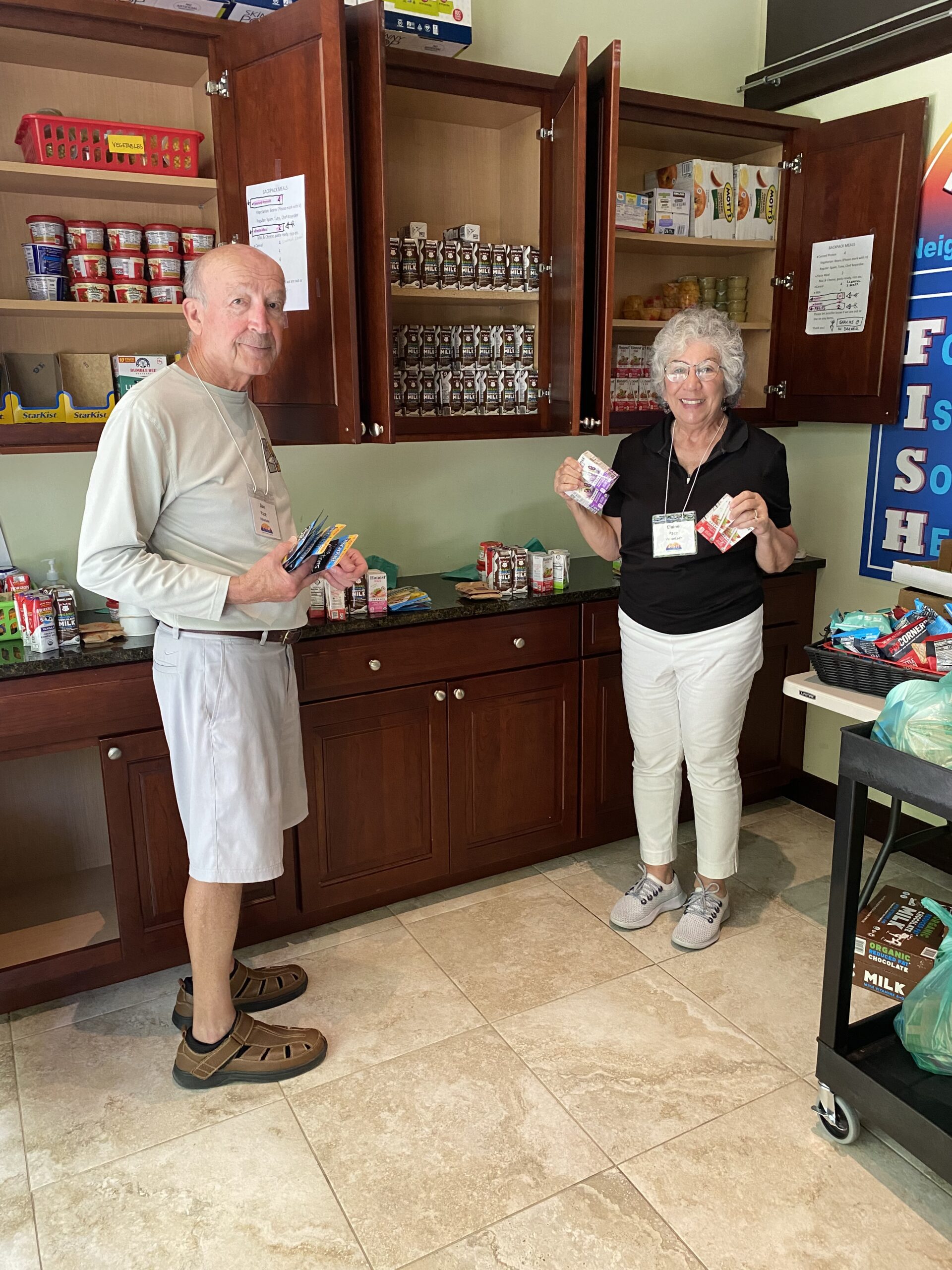
Access to nutritious foods is a key to childhood growth and development which adds increased stress to families facing food insecurity in Lee County. Particularly, with increased grocery costs and summer vacation drawing nearer, childhood hunger becomes a greater risk for area households. Many families rely heavily on school provided meals and need to find other ways to afford additional food products through August 10, when classes resume for the 2022/2023 school year.
According to Feeding America, the nation’s largest hunger-relief organization, people who are food insecure lack access at times to enough food and may make trade-offs with other expenses to buy healthy food. In Lee County children, the rate of food insecurity is 20.5%, or about 38,800 kids.[i]
Fighting childhood hunger is a key focus in FISH of SANCAPs array of food programs. Particularly, the FISH Backpack Program provides nutritious, kid-friendly supplemental food and snacks for children year-round, including extra during school breaks. Through the Backpack Program, students receive nutritious, easy to prepare, and great tasting foods, on a weekly basis. All backpacks contain protein, fruits and vegetables, snacks, breakfast cereal, soup and/or a pasta meal, milk, juice, and occasionally enhanced with a sweet treat, and FISH also includes organic and vegetarian choices.
Last year, FISH began a supplemental “fresh meal” add-on to the program that provides a well-balanced meal kit that families can easily prepare and enjoy together. This program is meant to encourage families to spend time together relieve some stress knowing that at least one meal a week is planned during their busy lives. Each weekly Fresh Meal includes a kid-friendly recipe and all necessary ingredients. Throughout the year, FISH staff often plans monthly meal themes which have included Asian Cuisine, a Healthy Twist on American Classics, Back-to-School and plant-based meals which adds an element of fun and variety for kids and parents alike. Not only are participating children spending quality time with family members, but they are also learning important life skills – problem solving, planning, organization, appreciation, and of course, cooking – that help them develop and grow. Studies have shown that good nutrition, particularly in the early years of life, is important for establishing a good foundation for a child’s future physical and mental health and academic achievement.
In 2021, FISH distributed 4,294 food backpacks to children, an increase of 118% over 2020. The backpack program is available year-round to any child, grades Pre-K through 12th, whose family has an island connection, either living on or parents working on the islands. Due to the dramatic increase in participating families and the increased need for food, FISH has doubled the amount of food provided weekly. “Our participation numbers continue to rise and inflation skyrockets,” says Maria Espinoza, Executive Director, FISH. To coordinate the increase in participation within the very limited space at the organization’s Walk-In Center, FISH added additional dedicated refrigeration for the Backpack Program’s fresh meal component and often stores additional product and assembled backpacks in their ancillary space on Palm Ridge Road.
While the program has grown in participation and cost, FISH extends their gratitude for funders of the food for the backpacks and fresh meals. “We are thankful to The Kiwanis Club of Sanibel & Captiva, AngelFISH Society, Community Foundation, other grantors and private donors who provide us with partial funding for this program which allows us to continue to provide additional selections in the backpacks as well as the ingredients and recipe cards for a fresh, healthy, and kid-friendly meal,” continues Espinoza.
Parents pick up the food bags at the FISH Walk-In Center located at 2430-B Periwinkle Way Monday-Friday between 10:00am and 3:45pm. For those interested in participating in the program, please contact FISH at 239-472-4775.
[i] https://www.naplesnews.com/story/news/health/2019/05/03/southwest-florida-12-population-food-insecure-including-20-children/3654923002/